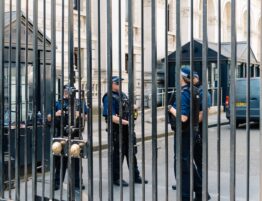
05 June 2020
The Tier 1 Investor visa, which enables non-EEA migrants to acquire visas by investing at least £2 million into British companies, does not have as many complex requirements as for example the Tier 1 Entrepreneur visa. But nonetheless the relevant rules do have to be read carefully and thoroughly understood, and it may not be as easy as it looks – and thereby hangs a legal tale.
Some private organisations, perceiving a good business opportunity, have set up Tier 1 Investor schemes, whereby migrants pay them some money and they assist them with their visa applications. Here they have to be careful because it is illegal to give “immigration advice”, within the legal meaning, in the UK unless you are an appropriately qualified lawyer – but there may be ways round this.
One such scheme was offered by a company called “Maxwell Holding Ltd”, which was a company registered in Jersey. As many readers will know, Jersey and indeed all the Channel Islands are not part of the UK, and so we suppose that Maxwell Holding Ltd felt quite unfettered in giving immigration advice about Tier 1 Investor visas to their clients.
The scheme they offered was remarkably complex. Maxwell Holding Ltd facilitated their clients taking out a loan with another company, “Maxwell Asset Management Ltd”, which is a UK-registered company. The very perceptive reader might suspect that there was a connection between these two companies, and they would be right: there was common ownership.
Then these funds were invested into another UK-registered company, “Eclectic Capital Ltd”. (There was some common ownership here as well, in this case through the wife of the director of the two Maxwells.)
The ultimate idea behind this scheme was that the investment into Eclectic Capital Ltd was a qualifying investment for a Tier 1 Investor – ie an investment into a UK-registered company. These loans were compulsorily converted by Eclectic Capital Ltd into share capital. However, either loan capital investment or share capital investment are acceptable under the relevant immigration rules.
Some applicants relying on this investment scheme had their Tier 1 Investor visa applications refused by the Home Office and their joined cases eventually came before the Upper Immigration Tribunal in Judicial Review proceedings – the case is called “JW and others”.
Interestingly, it appears from the judgment that these applicants in their initial Tier 1 Investor applications had relied on this scheme and their applications had been successful. But this did not help. As the Tribunal put it:
“The [Home Secretary] did not accept that she was under any obligation to compound any decisions which may have been incorrect in the past by making further incorrect decisions on future applications…”.
It would also appear that, this time round, the Home Office thoroughly disliked the investment scheme, and they produced a list of perceived legal problems with it. For one thing, the activities of Eclectic Capital Ltd at the time of the application rendered it a non-qualifying type of organisation for investment. This in itself was grounds for refusal.
But there was more: they had spotted the interesting fact that the directors of the companies were married to each other. This evidently created some suspicion and did not really help either.
And for another thing, the applicants had at an early stage lost control of their investments. It is a requirement of the rules that the funds are under the control of the investor, and this was also in itself a grounds for refusal.
And for yet another thing, the rate of financial return for the investments was very low. This created yet more suspicion and it had the Home Office wondering whether the investments were “genuine” – always of course a fatal word to see in a refusal decision.
Unfortunately for the applicants, and to put it short, the Upper Tribunal agreed with the Home Office. The applicants had indeed not had the requisite level of control over their investment and it had been appropriate of the Home Office to conclude that Eclectic Capital Ltd was not a qualifying company for investment. And so the Judicial Review application failed.
It would appear to us that (a) this scheme had not been properly informed by sufficient technical knowledge of the relevant immigration rules and (b) the company structures just did not look right as far as the Home Office was concerned.
If you are intending to apply for leave under the Tier 1 Investor scheme it is very important to ensure that you take advice from appropriately-qualified lawyers. This is not just a matter of technical knowledge; it is also a matter of what you might call “legal instinct”. Something that looks as though it may meet the requirements of the rules may not really be a good idea.
At Garth Coates Solicitors we have good knowledge and good experience of Tier 1 Investor applications and we may be able to help you.








